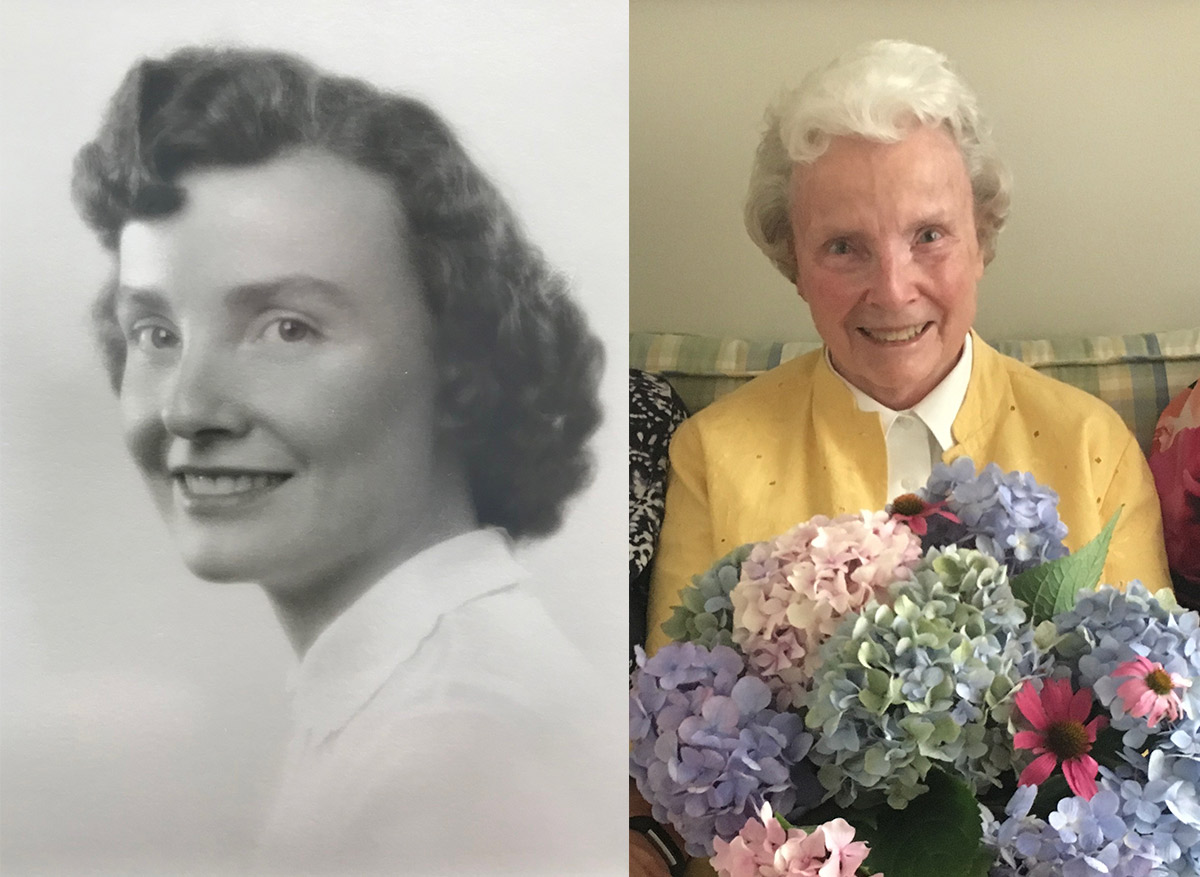A Career of Perseverance

nn Baker Jenkins’s favorite subject in high school was physics. But while a sophomore at Boston University in the late 1940s, she learned a truth that, while troubling, motivated her to pursue an academic career in the sciences with even more fervor.
“We were told that women couldn’t get jobs in physics. My options were limited to dietitian, chemistry or biology. I had a terrible experience in high school trying to kill a frog, so biology was out,” she jokes.
Not one to let obstacles hinder her goals, Baker Jenkins went on to earn a bachelor’s degree in chemistry (along with her twin sister, Alma, and a handful of other women) from Boston University in 1950, and a master’s degree in chemistry there in 1952. She next earned a doctorate in inorganic chemistry at the University of New Hampshire in 1961. A lifelong love of learning then sent her to Boston University, where, after more than a decade teaching at American University as a tenured professor, she earned an environmental law degree and an MBA at Boston University in 1977.
As a woman in the sciences, Baker Jenkins worked at some of the biggest corporations — including Raytheon and Dow in summer research jobs and WR Grace, researching liquid nuclear fuels — before finally finishing her career as director of product safety and product responsibility in the corporate research department at Allied Signal (previously known as Allied Chemical). In her role, she was the only woman professional in her area.
She had never planned to serve as a leader in the chemistry field — she persisted by pursuing what was interesting to her and by changing course when roadblocks stood in her way.
“A lot of people plan life out, but I just take it as it comes and I’ve enjoyed life very much,” she said. “I’ve always said, do something that you love. You can always get a job in almost anything if you know it well.”
After spending three years at the Massachusetts Institute of Technology as the first female Ph.D. candidate in analytical chemistry, she says she felt unwelcome there. She watched male counterparts obtain teaching assistant roles, as she graded papers behind the scenes for two years. She recalls feeling sabotaged in her efforts to advance in her program.
“I was told I should look at UNH; they had women professors and women graduate students. Besides that, the professors there were competent and well-known,” Baker Jenkins said.
It was at UNH that Baker Jenkins met Dr. Helmut Haendler, who encouraged her scholarship and connected her with the Oak Ridge National Laboratory, a multiprogram science and technology laboratory sponsored by the U.S. Department of Energy. Her dissertation was published in the first issue of The Journal of the American Chemical Society — Inorganic Chemistry. She credits Haendler for his mentorship — as well as his approachability and commitment to his students.
“Dr. Haendler wanted his students to be successful,” she said. “Some professors think students are students and you don’t waste any more time on them than you have to,” but Haendler was different.
Prior to coming to UNH, the academic and professional challenges were many: including a job interview where she was quickly told she wouldn’t be hired because she would probably soon get married and leave to start a family. And there was a professor at another institution who responded to her request to teach alongside her male colleagues as TAs that it simply wasn’t possible because a woman would be too distracting to the boys.
Thanks to her positive experience as a Ph.D. student under Dr. Haendler, today, Baker Jenkins is the principal donor to the Helmut M. Haendler Endowed Fund, which honors his memory. She continues to contribute to the fund (and to endowment funds at three other universities) because she believes students should be able to go to college and do what they want with their lives.
“When I left UNH, I had a small annuity, and I heard that Dr. Haendler’s students had set up a scholarship fund for him. It wasn’t endowed. I wanted to turn that over so that Dr. Haendler’s scholarship would be endowed and go on forever,” she said.
Today, the Framingham, Massachusetts, native lives in Maryland at a waterfront senior living community where she enjoys oil painting and playing her Steinway grand piano. She recently finished writing 300 pages of her memoir to pass the time during the pandemic. At 93, she continues to pursue things she finds interesting, and thinks others should, too.
“Life is too precious to not be doing something you enjoy. I feel like I did that all the way through my careers — even if there was something that I had to overcome in order to progress,” she said. “There may still be obstacles for women, but I don’t think that should stop any woman from going for what she really wants to do.”